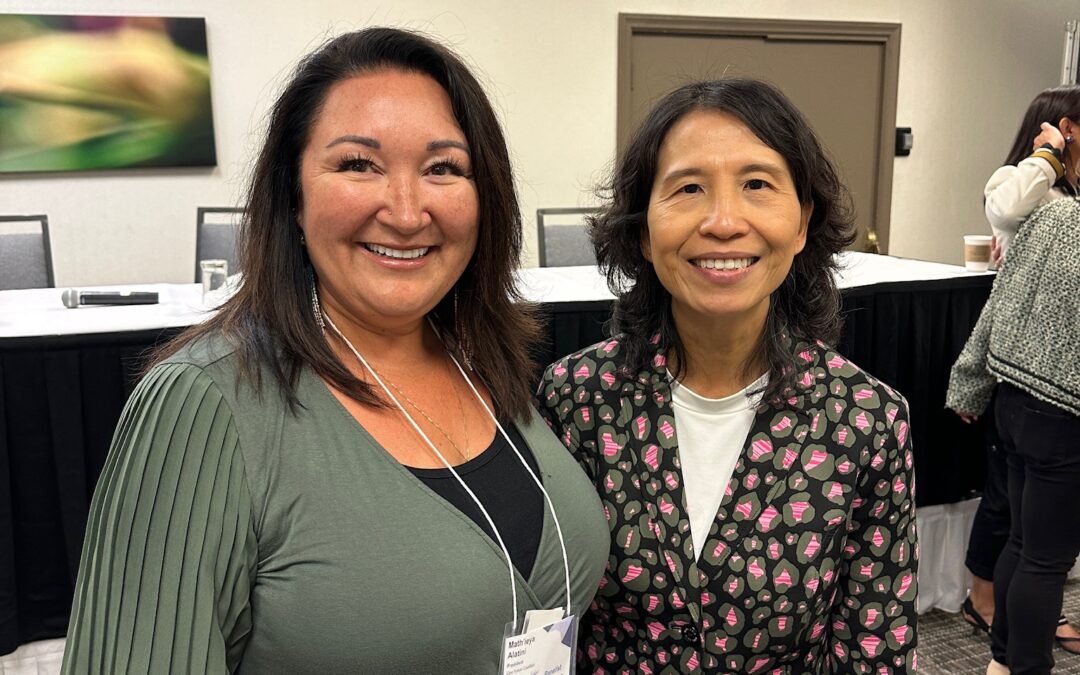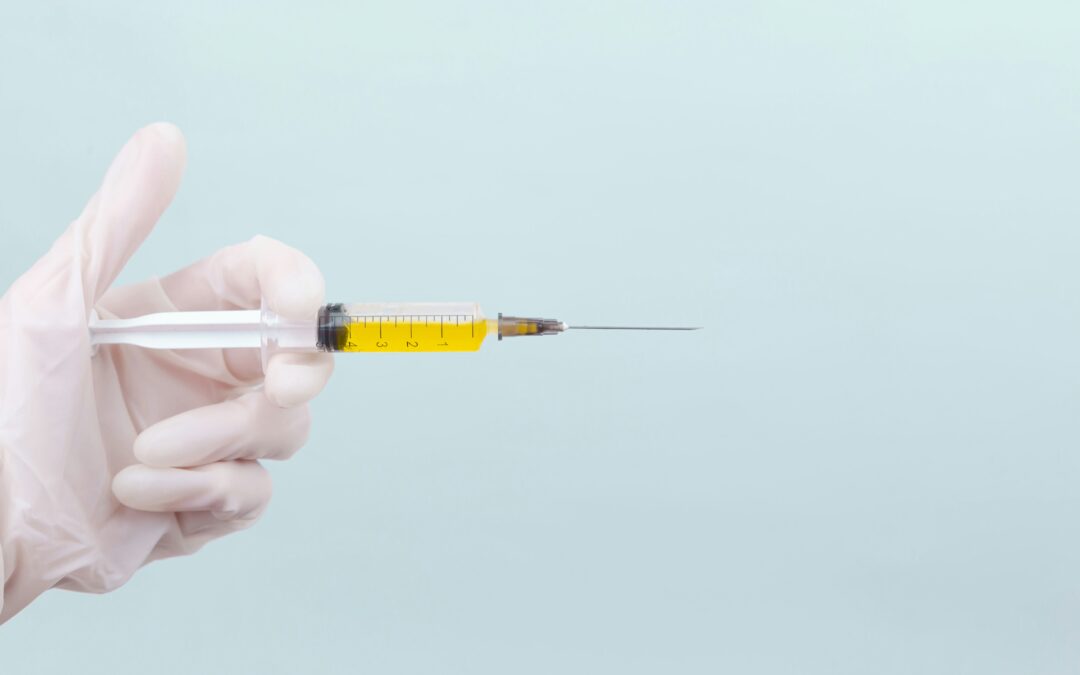by Admin | Oct 29, 2025 | Blog, Newswire
One Yukon Coalition Receives Charitable Status and Launches New One Health Website
Whitehorse, Yukon – October 28, 2025 – One Yukon Coalition (OYC) is proud to announce that it has been officially registered as a Canadian charity, marking an important milestone in advancing community-driven health research and education across the North.
Effective July 23, 2025, the Canada Revenue Agency (CRA) designated One Yukon Coalition as a Charitable Organization (Registration No. 748542214 RR0001) under the Advancement of Education – Research category. This designation recognizes OYC’s commitment to fostering local capacity, strengthening One Health approaches, and advancing equitable, evidence-based health and ecosystem solutions across Yukon and northern communities.
“Obtaining charitable status is a significant step in ensuring the long-term sustainability of our mission,” said Math’ieya Alatini, Board Chair of One Yukon Coalition. “It allows us to continue bridging Indigenous, environmental, and public health perspectives through research and education – by the North, for the North.”
To celebrate this milestone, One Yukon Coalition has launched its new website – www.oneyukononehealth.ca – a central hub for sharing research updates, educational resources, and community stories. The platform highlights OYC’s One Health programs, combining environmental monitoring, data innovation, and Indigenous knowledge to improve health outcomes and resilience across Yukon communities.
About One Yukon Coalition
One Yukon Coalition is a registered charitable organization based in Whitehorse, Yukon, dedicated to advancing One Health education and applied research in partnership with northern, rural, and Indigenous communities. Through programs that integrate environmental, animal, and human health, OYC supports inclusive and community-driven approaches to data, health, and sustainability.
Contact:
Carolina Koutras
Chief Operating Officer
One Yukon Coalition
201 – 307 Jarvis Street
Whitehorse, YT Y1A 2H3
Email: hello@oneyukon.ca
Website: www.oneyukon.ca
by Admin | May 6, 2024 | Blog, Newswire
Embracing Traditional Wisdom: How Wastewater Testing Can Aid Indigenous Communities in Addressing Substance Abuse
By Amanda Johnston, One Yukon Coalition Board Director
Substance abuse is a pressing issue that affects many of our Indigenous communities, posing a threat to our cultural values and the health of our people. As a One Yukon Coalition (OYC) Board Director, I am deeply committed to the well-being of communities and preserving traditional ways of life.
In recent years, wastewater testing has emerged as a powerful tool for understanding and addressing the challenges of substance abuse in a way that is respectful of our traditions and values.
Respecting Indigenous Knowledge
Our traditional knowledge teaches us the importance of living in harmony with the natural world and respecting the balance of life. Wastewater testing aligns with these principles by allowing us to understand the impact of substance abuse on our communities in a non-invasive and environmentally conscious way. By analyzing wastewater, we can gain valuable insights into drug consumption patterns and tailor interventions to meet the specific needs of our community.
Empowering Community-Led Solutions
One of wastewater testing’s strengths is its ability to empower communities to take a proactive approach to addressing substance abuse. By providing objective data on drug consumption, wastewater testing enables us to make informed decisions about prevention and treatment programs. This data-driven approach ensures that our efforts are focused on areas of greatest need, leading to more effective outcomes for our people.
Honoring Our Ancestors
As Indigenous people, we are the custodians of a rich cultural heritage passed down to us by our ancestors. Substance abuse threatens to erode this heritage, leading to the loss of traditional knowledge and practices. Wastewater testing offers us a way to honour the legacy of our ancestors by addressing the root causes of substance abuse and promoting healthy, sustainable lifestyles within our communities.
Building Stronger Communities
By embracing wastewater testing, we can build stronger, more resilient communities that are better equipped to address the challenges of substance abuse. This approach fosters collaboration between community members, researchers, and policymakers, creating a united front against addiction. Together, we can work towards healing and revitalizing our communities, ensuring a brighter future for generations to come.
Embracing Wastewater Testing
I believe that wastewater testing offers us a valuable tool in our efforts to address substance abuse in a way consistent with our cultural values and traditions. By embracing this technology, we can gain valuable insights into drug consumption patterns, empower community-led solutions, and honour the legacy of our ancestors.
Together, we can build stronger, healthier communities grounded in the wisdom of our past and the promise of our future.
If you or someone you know is struggling with alcohol or substances, help is available. Call 867-667-8473 to learn more about counselling, detox supports, treatment programs and medication coverage.
Amanda Johnston is One Yukon’s Board Director. Amanda brings her diverse heritage and holistic perspective to One Yukon as a proud member of the Crow Clan with a deep connection to her Kaska and Tahltan ancestry. Leaning on a vast experience of governance and community engagement, Amanda was recently elected Councillor for Liard First Nation. Alongside her elected position, Amanda is the Vice President of People and culture for Kermode Consulting and has demonstrated expertise in governance and community-centric health solutions.
by Admin | Apr 30, 2024 | Newswire
Reflections on Misinformation and Measles
By Kari Johnston, OYC Board Director
In an era where information is at our fingertips, it’s paradoxical that misinformation seems to have the upper hand, especially when it comes to public health.
As a communications strategist and a Board member for the One Yukon Coalition, I’ve witnessed firsthand the detrimental impact of misinformation on our community’s well-being – on my well-being, to be frank. As the manager for OYC’s social media accounts during the pandemic, at times, it was utterly exhausting trying to wade through the comment section, respond to genuine requests for information and manage the account for misinformation and posts from trolling accounts.
I worry about the impact of misinformation in our communities and how it impacts our ability to have good public health discussions. This leads me to today’s blog post about measles, a disease we thought was almost eradicated but is making an unwelcome comeback into communities.
Rising Concern of Measles
Measles is a highly contagious viral disease that can have serious complications on one’s health, especially in children. The measles vaccine, a cornerstone of our public health, has dramatically reduced the incidence of the disease worldwide. In Canada, widespread vaccination has led to a significant decline in measles cases.
In 1998, measles elimination status was achieved in Canada, and yet, we’re witnessing a concerning trend: sporadic outbreaks in regions with low vaccination rates.
In recent years, Canada has seen pockets of measles resurgence. These are not random occurrences but correlate strongly with areas where vaccine coverage is not great. In Yukon, where we pride ourselves on community and mutual care, it’s crucial that we have a meaningful and engaging dialogue on public health issues.
Good Dialogue is at Risk
Recently, I have attended community events and casual conversations in my community, where the dialogue on vaccination is hostile. Being on the receiving end, it felt a lot like bullying. Myths and unfounded fears surrounding vaccines communicated in abrasive and confrontational ways put our ability to have good dialogue at risk. It’s a stark reminder of the power of words and the responsibility we carry in the information we share and consume. If you’re curious to learn more about having effective conversations about vaccines, I encourage you to check out this resource.
Protect Your Community
We at One Yukon are dedicated to empowering our community with reliable information. We firmly believe in the transformative power of dialogue and education to foster a healthier Yukon.
Getting vaccinated is the best way to protect yourself and your community from the spread of measles. Click here to learn more about the vaccine and how to access it in the Yukon.
Kari Johnston is deeply committed to social impact, community resilience, and entrepreneurial innovation, particularly in the Yukon. Graduating from University of Waterloo, Kari has had an expansive career, leading her to found Rafter 14 Strategies, a consultancy focused on designing and implementing social impact programs. Kari has also played a critical role in managing the COVID-19 response in the Yukon. Most recently, she has embraced the role of President and General Manager of Sha Shaw Corporation, the Champagne and Aishihik First Nations social impact corporation.

by Admin | Apr 15, 2024 | Newswire
Key Takeaways from the National Congenital Syphilis Conference
On February 28 and 29, 2024, One Yukon Coalition participated in the National Congenital Syphilis Conference. Hosted by the Public Health Agency of Canada, this proactive event assembled over 200 health professionals nationwide to identify barriers, exchange best practices and brainstorm innovative ways to deal with the rise of syphilis.
In the last four years, there has been a staggering 109% increase in syphilis rates across Canada.
Syphilis is a bacterial infection primarily transmitted through sexual contact (oral, vaginal or anal), skin contact with open sores and rashes, or the sharing of sex toys. Additionally, congenital syphilis cases may occur when an infected parent passes on the infection to their baby during pregnancy or birth.
Many people who have syphilis may not have symptoms, while other people may experience mild to severe symptoms. Regardless, left untreated, syphilis can cause serious long-term health harm.
Bringing an Indigenous voice to addressing syphilis, One Yukon Coalition Board Chair Mathieya Alatini participated as a panellist in the workshop “Removing Barriers to Prenatal STBBI Care in Northern, Remote, or Isolated Settings.”
In this blog post, we delve into our experience at the conference, offering insights into the collective efforts to combat syphilis and sharing key takeaways. Join us as we explore some of the critical aspects of eradicating syphilis by 2030.
Disproportionate Impact on First Nations
Policy and system changes are required to address the disproportionate impact syphilis has on First Nations communities. Research from 2021 shows the syphilis infection rate in First Nations communities is 13 times higher than the national average.
Access to Testing and Treatment
Regular testing and quick treatment are crucial to reducing syphilis rates in our communities. Unfortunately, people in Northern or remote areas and those experiencing homelessness often face difficulties in getting tested and connected to ongoing care.
Bringing point-of-care tests into communities increases access and potential for people to test without necessarily being in a healthcare setting. If syphilis is detected, wraparound services that focus on a person’s whole health are a proven tactic to ensure ongoing care.
Reducing Stigma Together
Organizations must work together to support conversations that normalize testing and empower people. A significant barrier to reducing syphilis is the feelings of shame or guilt some feel when it comes to getting tested. Regular testing helps us keep each other safe and address syphilis when identified in our community.
Rapid Self-Test Kits for HIV
Ensuring widespread access to these essential health tools can save lives. One Yukon plays a pivotal role in addressing sexually transmitted and blood-borne infections by partnering with national and local entities to create awareness and bring vital rapid testing technology to the Yukon. This work includes the facilitation and distribution of rapid and self-test kits for HIV.
We are working with Yukon Government Health, Yukon Communicable Disease Control and other front-line partners to bring rapid point-of-care testing for syphilis to Yukoners, especially those most vulnerable. To learn more about pathways to care in the Yukon, click here.
Are you ready to test? Click here to access your free test kit and more information on how to prevent HIV in our community.

by Admin | Mar 12, 2024 | Newswire
NEWSWIRE | ONE YUKON COALITION
You may be surprised to learn that around 75% of sexually active individuals will encounter at least one human papillomavirus (HPV) infection in their lifetime, often without showing any symptoms.
HPV impacts people of all genders and is primarily transmitted through skin to skin sexual contact. For many, it behaves like a common cold, coming and going without causing noticeable issues. However, when HPV persists, it can lead to concerns such as cervical cancer or genital warts.
The good news is that there are simple steps everyone can take to prevent the spread of HPV. Getting vaccinated and practicing safer sex are important for keeping yourself and the community healthy.
In the Yukon, HPV immunizations are provided free of charge in schools starting from Grade 6. For others who don’t have one, it’s never too late to get the vaccine. Scheduling an appointment is easy—just reach out to your local health center or pharmacy.
As we observe this year’s International HPV Awareness Day, we invite you to join us in spreading awareness, promoting education, and inspiring action against HPV. Explore these six resources to have informed discussions within your community and contribute to the ongoing efforts to prevent HPV.
HPV Prevention Week with Dr. Nancy
Created by the Society of Obstetricians and Gynaecologists of Canada, Dr. Graeme Smith and Dr. Nancy Durand delve into what HPV is and how prevalent it truly is. With a focus on women’s health, this podcast leaves you with a more clinical understanding of HPV.
HPV Factsheet
Did you know that HPV is a group of more than 100 different types of viruses? Explore more interesting facts in this sheet developed by the Canadian Cancer Society. This resource will provide you with a foundational understanding of what HPV is and share preventative actions you can take.
Canada vs HPV
“Canada vs HPV” is dedicated to uniting and empowering Canadians in the prevention of HPV-related cancers and diseases. It serves as your one-stop-shop for information tailored to parents, healthcare professionals, women, and men. Their readily available downloadable guides make it easy for you to share the information with others.
HPV, Cervical Dysplasia and Cervical Cancer
While most sexually active people will have HPV at some point in their lives, sometimes the infection does not go away, which can lead to cancer. Gain a deeper medical understanding of the relationship between cancer and HPV in this resource created by CATIE.
Should You Get the HPV Vaccine?
Choosing to get vaccinated is an effective way to protect yourself and others, however is it the right choice for you? In this video, Dr. Mike Evans breaks down the reasoning behind vaccines and addresses some of the pros and cons of getting the HPV vaccine.
Shareable Graphics
Looking to share some of your new knowledge with friends, family, or colleagues? Immunize Canada has you covered with downloadable posters and social media graphics that you can display in your community or post on social media to share with your network.

by oneyukon | Sep 15, 2023 | Newswire
NEWSWIRE | ONE YUKON COALITION
Happy Friday! Here’s a quick look at some of the health and wellness headlines from the past week. With respiratory season just around the corner, let’s stay ready, stay informed and stay safe Yukon! 👍
Health Canada’s Update on the Upcoming Respiratory Virus Season
👉 Federal health officials on the National Advisory Committee on Immunization provided an update this week on what we can expect from the upcoming respiratory virus season.
🧑⚕️ The committee is encouraging Canadians to get vaccinated for COVID-19 and to watch for updates from territorial government about COVID-19 and seasonal flu vaccine availability.
🦠 Knowing how serious respiratory illnesses like COVID-19, Influenza and RSV can be, the committee stressed that getting vaccinated may not prevent you from catching these viruses, but could help improve your chances of having only mild symptoms if you become sick.🤧
🚨 This is particularly important for anyone at an increased risk of severe disease, including seniors age 65+, residents of long-term care facilities, anyone who is pregnant or has underlying medical conditions.👀




